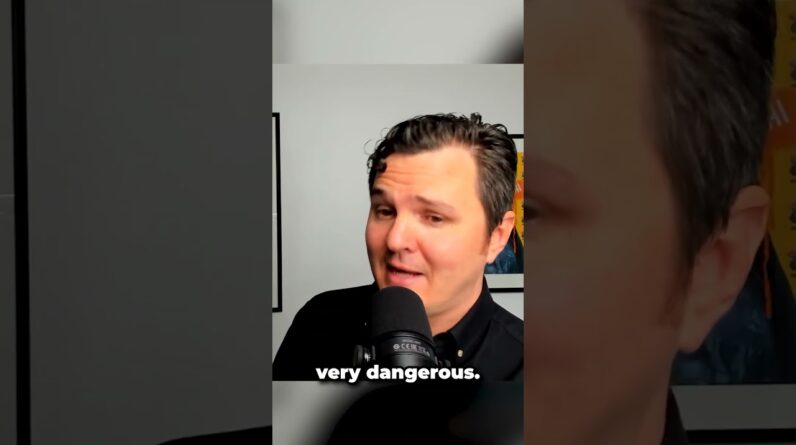In 1997, history was written when the IBM supercomputer Deep Blue defeated reigning world chess champion Garry Kasparov. Humanity had sent its greatest warrior, a Russian, who had been world champion for a record number of years. Garry was no one day fly, he was the best in all history. At the same time, during his reign, engineers worked arduously on a chess engine. Convinced they were, that one day, the computer would defeat even the greatest player of all time. It was going to be a perfect fight. The best human vs. the best machine. Either man or machine would have to bend the knee.
Quoting Garry, “That was the first time I lost. Period.” Yes. Kasparov hadn’t lost a match to anyone yet as world champion. Only the computer beat him. This upset him deeply. Distraught, he walked away from the chess board. How was this possible? Wasn’t it the nature of man to be creative, strategic, and superior? We could say that postmodernism ended the day Kasparov lost. Man was not what he thought he was. Elevated, beyond animal, distinct, superior…egoic. The machine crushed all Kasparov’s beliefs. It crushed his ego. I’m not sure the Russian grandmaster has still fully gotten the memo yet. But that’s not important. The question is: Did we get the memo?
William Gibson once said, “The future is already here, it’s just not evenly distributed.” Whatever Kasparov faced, we are all going to have to confront in the near future. It’s inevitable. Kasparov experienced it first because he was at the top of his game. Garry couldn’t have any delusions about his defeat, whilst the rest of us can still deny the war is coming. Kasparov bravely, as a true warrior, faced the machine early.
And lost.
A Perfect Fight
Now, what does it mean for humanity at large? To see the significance of Kasaparov’s loss, we have to understand what a perfect fight is.
In a perfect fight two warriors agree to duel. It’s a test of strength. The warrior who has aligned himself with the highest principles will have the superior strength and win. The loser will be humbled, and his ego crushed. By accepting the loss fully, the defeated warrior can extract the lesson. This is an uncommon attitude in the western world, but chivalric code, bushido, and chess, still honor the value in defeat and learning. There’s no shame in loss. There’s shame however in avoiding mistakes. One needs to properly humble oneself to superior power.
The best exemplar of this “perfect fight” is the duel between Rokurota and Tadokoro in Akira Kurosawa’s Hidden Fortress, the Japanese precursor to Star Wars. In this flick, Rokurota is a general of the Akizuki clan who just lost the war against the Yamana. The Princess, escorted by legendary samurai Rokurota, tries to smuggle her gold and livelihoods behind enemy lines into friendly territory. However, the Yamana get wind of their position, and Rokurota goes in pursuit, to kill the messengers who spotted them. In his attempt he gets encircled by the army of the great Yamana warrior Tadokoro. Who is surprisingly happy to see him…
“Why if it isn’t Rokurota Makabe,” shouts Tadokoro, as he stands up smiling, walking towards his favorite enemy.
“Hey, Hyoe Tadokoro!”
“Stand aside, you are no match for him,” Tadokoro commands his soldiers and starts laughing at Rokurota. “A rare meeting! I regret not meeting you on the battlefield this time around.”
“I regret it too.” Both laughing. Rokurota’s face tightens.“What about a duel?”
“With pleasure!”
These standards of combat are full of warrior code (bushido). Both players are ready to test their worth in battle at the cost of their lives. They were honestly looking forward to the fight without cowardice. Whilst Rokurota is trapped, it is he who challenges Tadokoro from an inferior position. It’s paying respect for being captured by his enemy. He takes the lesser spear.
But Tadokoro loses in the end and willingly sits down, so that Rokurota can chop off his head. Rokurota refuses and converts his win into a free pass to escape. In the latter parts of the story it becomes clear why Rokurota won. It is because he has aligned himself with fighting for the higher principle, embodied by the Princess (honesty, compassion, sovereignty, loyalty). Tadokoro, in the final act, eventually understands the nature of his loss. It was he who wasn’t properly aligned, and fighting for inferior principles. Only at this point has the warrior fully integrated the loss, and was revealed a higher power. This is the true definition of losing. It is an opportunity to burn off inferior behavior and upgrade yourself. In a perfect fight, the losing side has much to gain when the loss is properly accepted in humility.
Picasso vs The Machine
Kasparov was not the first legendary warrior to face the machine. A century earlier it was Picasso, the top artist, who had to suffer a defeat against an innovation called photography. But Picasso was a great warrior, at the levels of Tadokoro, for he properly understood the loss. The machine showed him all that was mechanical about himself. Realism is purely mechanical and perfected by the camera. It completely destroyed the art of painting reality.
But Picasso didn’t stop painting. He merely stopped copying and began expressing what was inside him. And so he became one of the first to transition from realism to cubism. Picasso famously said, “It took me four years to paint like Raphael. But a lifetime to paint like a child.” Photography didn’t destroy Picasso, the machine merely exposed his true human nature and relieved him of all his roboticness, enabling the journey inward.
Why Everyone Is Scared
The world is currently going through a great transition of consciousness. We now all stand face to face with the machine. The scary part is, what will be left after we have suffered this defeat. What remains of humanity? Won’t the machine be superior in all facets of life? Am I redundant? Who am I really? Is there something deeper inside me? Is there anything inside at all?
Maybe most won’t even hit onto the deeper layers of questioning and solely remain concerned with whether they’ll have a job in the future. Unfortunately, we live in a financial system that doesn’t allow for deflation delivered by the machine. Hence people are confused about the nature of technology whose only purpose was to liberate our time. But inflating currencies worldwide have obfuscated this benefit and turned the machine into a device that is set out to destroy us.
Machine Money
The solution lies in adopting Bitcoin. Introduce the machine in money, so we can align again with the higher principle of what the machine naturally wants to do: liberate us. And may we relinquish all that is machine within. Only then can we fully explore what it means to be human. Only then can humanity evolve to a higher spiritual state, and transcend the oppression in which we live today.
We should approach this global initiation as a perfect fight. Confront the machine as a true warrior, like Kasparov, Picasso, Tadokoro, …Neo. It is no coincidence all modern mythology is drenched in the thematic battle against the machine. For it is the fight of our lifetime. It will be an apocalypse in the truest sense of the word — a revelation.
The machine will show your true nature.
Ready to lose?
Sources
Kasparov vs Deep Thought Documentary https://www.youtube.com/watch?v=ke8pq-cpOGk
This is a guest post by Bitcoin Graffiti. Opinions expressed are entirely their own and do not necessarily reflect those of BTC Inc or Bitcoin Magazine.



